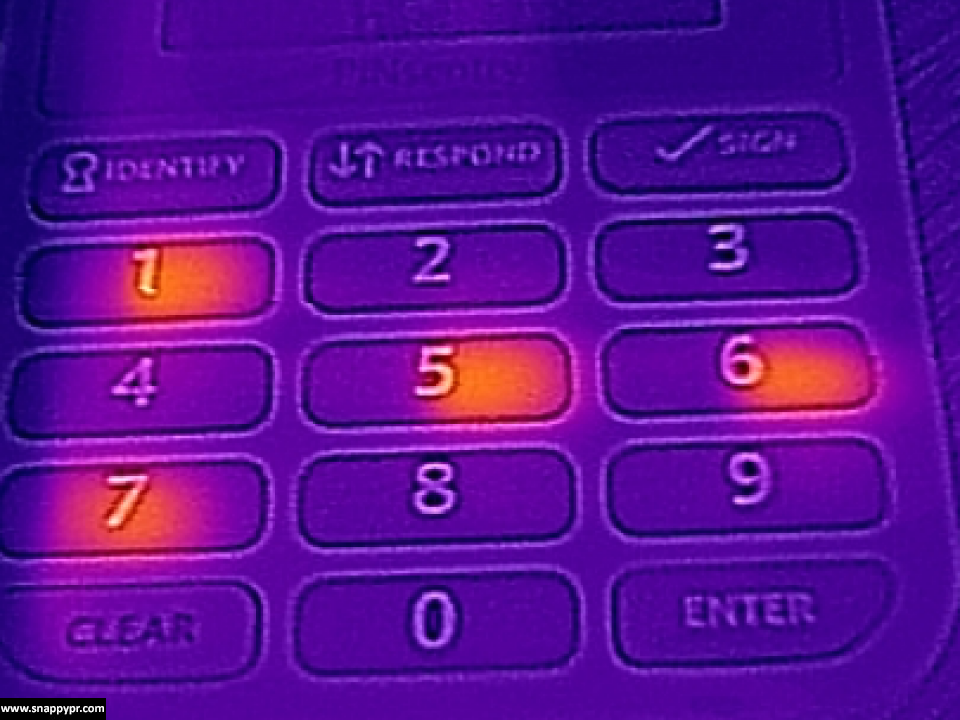The £200 device that could steal your bank PIN

The increasing availability of cheap thermal imaging equipment – once the sole preserve of only the best-equipped attacker – is creating an ever-increasing risk to push-button security devices. Using a readily available iPhone accessory costing less than £200, Sec-Tec tested a wide range of push-button security devices, including ATMs, locks and safes, and found that certain devices could leak the digits pressed by a legitimate user for over a minute after use.
While identifying the keys in use is straightforward, pinpointing the order in which they were pressed is considerably more difficult. However, Sec-Tec has created two undisclosed methods that assist considerably in the identification of key ordering, and many of the devices utilise no lock-out mechanism; this means that testing all combinations of a four-digit code once the digits are known is easy.
Sec-Tec makes the following recommendations to limit the risk of attack:
1. The use of devices with metallic (as opposed to plastic or rubber) keys makes such attacks impossible.
2. Palming the keypad after use, even for only a few seconds, prevents attacks in the majority of cases.
Sec-Tec has combined this attack vector with existing RFID cloning equipment to successfully compromise two-factor door locks on a physical-penetration test.
For more details contact David Wray at: davew@sec-tec.co.uk
